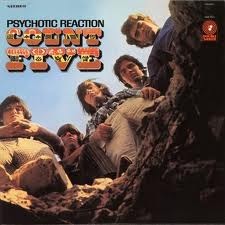By Ed Silverman
November 21st, 2011 // 10:32 am

In the latest reason for concern about prescribing antipsychotics for children, a study finds that foster kids are being prescribed combinations of antipsychotics just as frequently as some of the most mentally disabled youngsters on Medicaid. And the findings underscore a growing trend to prescribe these meds, which are approved only for schizophrenia and bipolard disorder, for any psychiatric issue.
The study, which was published in Pediatrics, found that about 2 percent of foster kids were given at least one antipsychotic, even though schizophrenia and bipolar disorder are very rare in young children. The findings resemble a recent report that kids in Florida’s state-run jails and residential homes are regularly given large doses of the meds but not for approved uses (see this).
The study in Pediatrics analyzed Medicaid records from 2003 of nearly 638,000 children from a mid-Atlantic state who were either in foster care, getting disability benefits for a diagnosis like severe autism or bipolar disorder, or in a program called Temporary Assistance for Needy Families. The upshot: nearly 17,000, or 3 percentl, had received at least one prescription for an antipsychotic (read the abstract).
Moreover, 9.2 percent of the foster children more often received a prescription for more than one med at the same time, compared with 6.8 percent among those on disability and 2.5 percent of those in the needy families program, The New York Times notes.
This is apparently the first study to look at the frequency with which foster children are prescribed antipsychotics, the researchers tell the paper. These meds, by the way, include Risperdal, which is sold by Johnson & Johnson; Zyprexa, which is sold by Eli Lilly; and Seroquel, which is sold by AstraZeneca. The drugs are known to increase the risk of diabetes and weight gain, and the drugmakers have faced expansive litigation and government probes over charges they did not adequately disclose the risks (see here, here and here).
“The kids in foster care may come from bad homes, but they do not have the sort of complex medical issues that those in the disabled population do,” Susan dosReis, an associate professor in the University of Maryland School of Pharmacy and the lead author, tells the paper. “We simply don’t have evidence to support this kind of use, especially in young children,”






The drugs are known to increase the risk of diabetes and weight gain, and the drugmakers have faced expansive litigation and government probes over charges they did not adequately disclose the risks.